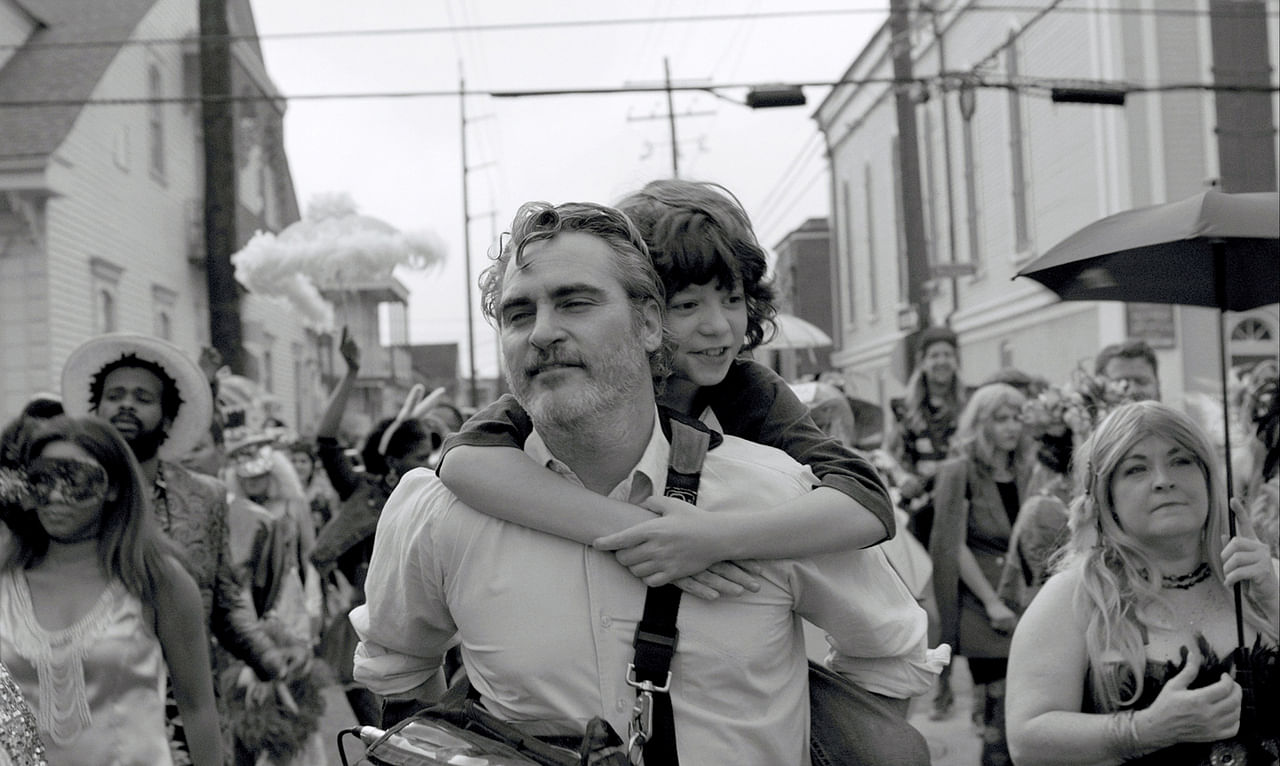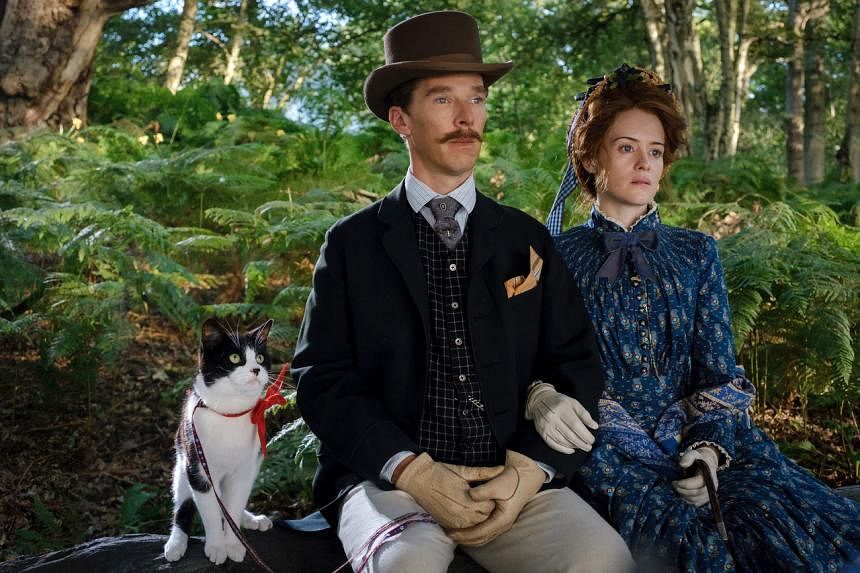The Electrical Life Of Louis Wain (PG13)
111 minutes, opens April 7
3 stars
The cat portraits are a staple of first-year psychology textbooks: They form a timeline, meant to illustrate artist Louis Wain's descent into schizophrenia.
The creatures look realistic at first, then gradually become more abstract and swirly until, in the final image, only a squiggly pattern remains.
It is a neat measure of a disintegrating mind - perhaps a little too neat. Because in recent years, it has come to light that the English artist did not date his creations, so he could have swung between realism and abstraction.
Wain's psychiatrist organised the paintings to make it look as if the painter was losing grasp on reality over time.
Like the recent attempt at debunking the cat painting timeline, this movie tries to rehabilitate the image of this now-obscure painter who, just before World War I, was one of the most popular illustrators in the West.
Nobody knew who cryptographer Alan Turing was either, but the movie about him, The Imitation Game (2014) - also starring Benedict Cumberbatch as the lead character - was a commercial and critical hit, proving that obscurity is no hindrance in a biopic.
As a young man, Wain (Cumberbatch) is a jack-of-all-trades: a part-time magazine illustrator, inventor and music composer.
He, his five sisters and mother are in desperate need of money, so he takes a job as a magazine illustrator, working with editor Sir William Ingram (Toby Jones). His family hires a governess, Emily Richardson (Claire Foy), for the girls. She and Wain begin a romance.
The rest of the film covers the remaining decades in the life of a man who is frequently his own worst enemy. He fumbles an attempt at capitalising on his popular drawings of cats doing human things, while his beliefs about electricity as the driving force of the universe grow more intense and distracting.
Director and co-screenwriter Will Sharpe knows his way around a mental illness story, having helped create the award-winning Channel 4 drama-comedy series about a family struggling with a parent's depression, Flowers (2016 to 2018).
Sharpe's careful way of handling mental illness can also be seen here. His Wain is a cross between the childlike fool from Shakespeare, the conspiracy theorist who sees patterns everywhere and the victim of terrifying hallucinations. Wain's eccentric, self-sabotaging ways exasperate his benefactor Ingram and love interest Emily, and provide most of the film's comedic moments.
Biographies of tortured geniuses - The Imitation Game among them, along with films about Dutch painter Vincent van Gogh - use a predictable template, but Sharpe skirts the cliches by never linking creativity to disability or forcing an arc in which the neglected artist finally finds recognition.
Cumberbatch's Wain, like his Turing, fails at comprehending simple social cues. Unlike the hyper-focused Turing, Wain struggles to keep his wayward mind on track.The result is messy. The story spans his whole career and might have benefited from taking just a slice of his life, but in the sprawl is a sensitively drawn portrait of a troubled human who would have been in much deeper water if not for his talent and the love and support of his friends.
C'mon C'mon (PG13)
109 minutes, opens April 7
3 stars

Film-maker Mike Mills makes movies that reveal the interesting new shapes that American families have settled into after members have been exposed to larger trends, such as feminism (the comedy-drama 20th Century Women, 2016) and gay rights (romantic comedy Beginners, 2010).
This movie explores family dynamics, but at a much smaller scale and with a deeper level of intimacy. Here is radio journalist Johnny (Joaquin Phoenix), a man used to travelling solo, being asked to look after his nine-year-old nephew Jesse (Woody Norman) because his mother Viv (Gaby Hoffmann) needs to deal with an emergency.
Johnny travels to New York City and New Orleans, collecting oral histories from children, with Jesse in tow. Much of the film sees everyone working out his or her feelings - old hurts exist between Johnny and Viv, and new resentments form between Jesse and Johnny too, after Jesse suspects that the adults are withholding information about his father Paul (Scoot McNairy).
This is a largely plotless, talky project, almost a therapy session in the form of dialogue between the three main characters: Jesse and Johnny speak directly, while Viv and Johnny deal with each other on the phone.
It is a New Yorker magazine piece come to life, a portrait of modern America, reflected in the stories Johnny draws out from the children he interviews, and from his own family's status.
Mills brings out strong performances from Phoenix, Norman and Hoffmann and the monochrome cinematography is a joy to behold.


